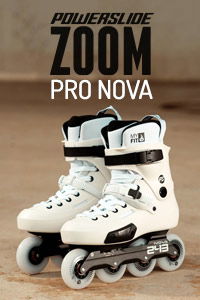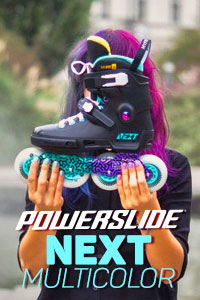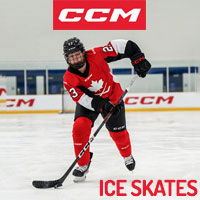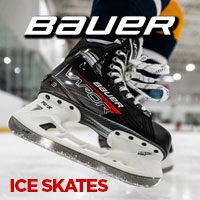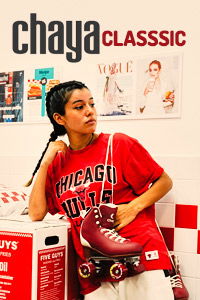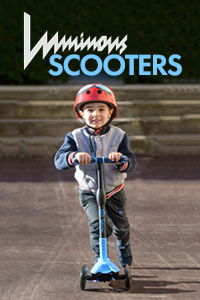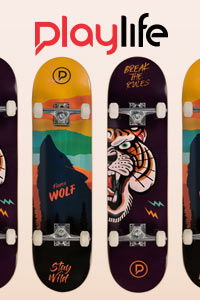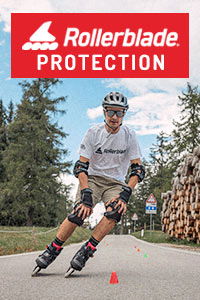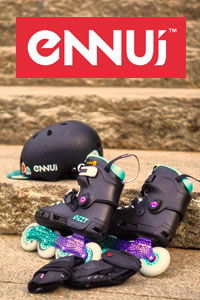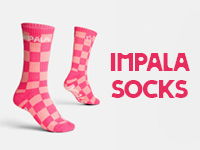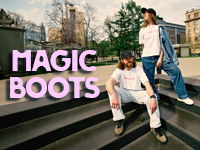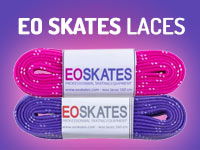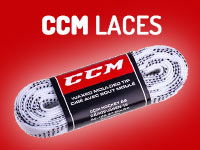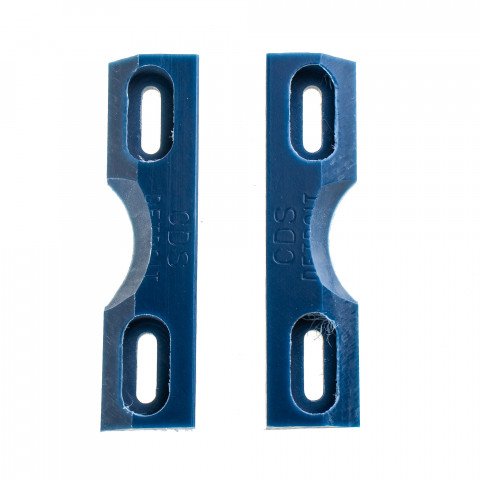- paif of grindplates (2 grindplates)
- no mounting screws
If the ordered goods do not meet your expectations, you have the right to return or exchange them within 14 days of receiving the order.
Costs and shipping methods depend on the total sum of the order and the shipping address - details can be checked here.
A product with a physical or legal defect (warranty) can be used to make a complaint within 2 years from the date of purchase.

Kizer Element Frame Grindblocks - White

FR UFS Raising Plate 1mm (4 pcs.) - Black

Ground Control HD Frames Plastic H-Block - Black

Seba Street Frame Rocker Spacers - Square (16 pcs.)

Create Originals G-Blocks - Black

CDS Detroit Grindplates Regular Long 3/8'' White

50/50 Juice Blocks - Yellow

CDS Detroit Grindplates Grease Stick 3/8'' Grey

CDS Detroit Grindplates TS-Burgundy 3/8''

CDS Detroit Blue Angel Long 1/2'' Blue

CDS Detroit Grindplates Woodies 3/8'' - Brown

CDS Detroit Grindplates Bullets Plate 3/8'' Clear

CDS Detroit Grease Stick Long 1/2'' Grey
Product details
CDS Detroit was one of many companies which surfaced thanks to rollerblading’s sudden rise of popularity in 90’s. It is fair to say that even though progress in terms of hardware available to skaters was rapid, it simply couldn’t keep up with people who constantly pushed boundaries of what is possible on skates.
Even later on, when dedicated street skates like iconic Rollerblade Tarmac and Roces M12 have dropped, they were still built around the older “rec” boot template and came with a premium price-tag. Bladers were still using cheaper, entry-level skates and it was a common practice to heavily mod the gear to make it both better suitable for grinding rails and ledges, as well as longer lasting. There were the times before replaceable frames and soulplates became a thing, which applied to both low and high end skates alike.
A lot of accessory and parts manufacturers have entered the market, offering abundance of option to mod your skates. Some of them managed to survive to this day (for example, 50/50 frame manufacturer who made other custom parts in the past), but majority of them have went under after UFS has been introduced and skate companies have started to offer easily replaceable soulplates.
A very cool relic from the times of primordial rollerblading soup are grindplates. These are simply composite (or metal) plates which are attached to the frame using axles, in place where h-block/groove is. In specific, these were invented before any of the companies have entered the market with pre-grooved frames. For quite a while, skaters needed to carve their own frame groove simply by grinding ledges.
Word on the street is that the very first grindplates were flat, hexagonal keys which come packaged with Rollerblade Lightning skates. The key could be inserted under the nuts of axles and had the length and shape just right to protect the frame from excessive damage during royale grinds. It is hard to say if this was an intentional design or simply a proof of skaters’ resourcefulness – important thing is that it worked and the idea was quickly perfected. The “proper” grindplates quickly hit the market.
Grindplates were basically a lifeline for skaters back in the day. Back then, grinding through the frames meant binning the whole skates. Even if you had an access to a hockey shop which could remove old frames and rivet on new ones, the issue was – where to get them? They were not exactly easily available. Even if you got hold of a pair (i.e. salvaged from skates with cracked shells), you surely wouldn’t want to repeat the whole endeavor any time soon. Grindplates were protecting frames from wear, allowing it to last longer. There was an interesting side-effect to using them – they have strongly influenced skating style back in the day.
Early skates had very little soul space. Skaters were modding their gear to make soul-based trick easier, by adding pieces of material to heel “fins” present on most boots as well as primitive soulplates at the front, quite often made from UHMW PE kitchen cutting boards. Even after these mods, the soul space was still narrower than in current skates and grindplates were taking away a bit of it, seeing that they have been sticking out of the frame surface. This is why first pro-bladers had such great style – they needed to lean onto both soul and groove based tricks more, bending their knees, going low and shift their weight more onto the center of obstacle. You either had a good style or you were constantly slipping out of grinds.
Grindplates have also limited wheebite, as they have increased the distance between wheels and grinded surface. As mentioned earlier, you needed to also go lower on royale tricks, further enhancing this effect. Last but not least, grindplates made out of metal were sliding better on copings than “naked” plastic frames.
They were a must have – cost-efficient way to improve grinding experience and make skates longer lasting.
In theory, there is nothing preventing you from using grindplates with current UFS frames. In practice – seeing that modern frames have wider split between middle wheels, they may not be long enough. The axles diameter can also be a problem, seeing that most skates used 6 mm ones back in the day, while nowadays 8 mm is the standard – but you can drill out the holes to be larger. However, if you crave some old-school, you can certainly try!
Still, nowadays the grindplates are mostly a neat and cheap collector’s item. If you like collecting historic rollerblading gear and have some classic skates displayed on your wall – these will be a perfect way to “upgrade” them for that authentic look.
About manufacturer
CDS Detroit Blue Angel 1/2'' Blue
0.0
This product has no reviews yet.
Add first !
Similar items

Kizer Element Frame Grindblocks - White

FR UFS Raising Plate 1mm (4 pcs.) - Black

Ground Control HD Frames Plastic H-Block - Black

Seba Street Frame Rocker Spacers - Square (16 pcs.)

Create Originals G-Blocks - Black

CDS Detroit Grindplates Regular Long 3/8'' White

50/50 Juice Blocks - Yellow

CDS Detroit Grindplates Grease Stick 3/8'' Grey

CDS Detroit Grindplates TS-Burgundy 3/8''

CDS Detroit Blue Angel Long 1/2'' Blue

CDS Detroit Grindplates Woodies 3/8'' - Brown

CDS Detroit Grindplates Bullets Plate 3/8'' Clear



